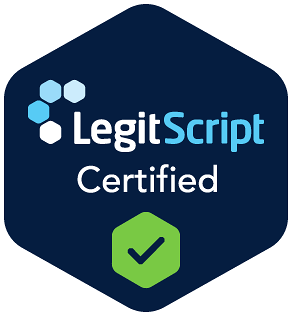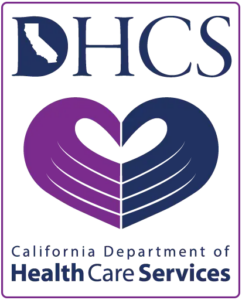Breaking free from alcohol addiction requires more than willpower-it demands professional support and the right environment. Huntington Beach offers a unique combination of world-class treatment facilities and natural healing elements that accelerate recovery.
We at Surf City Detox understand that choosing alcohol rehab Huntington Beach represents a pivotal moment in your life. The ocean’s therapeutic presence creates an ideal backdrop for transformation and lasting sobriety.
Why Huntington Beach is the Perfect Setting for Alcohol Recovery
The coastal environment of Huntington Beach creates measurable physiological changes that accelerate recovery from alcohol addiction. Research from Stanford University shows that exposure to ocean environments reduces cortisol levels by up to 25% within just 20 minutes, directly counteracting the elevated stress hormones common during early sobriety. The negative ions that ocean waves generate increase the flow of oxygen to the brain, boosting alertness and mental energy while helping regulate serotonin, naturally combating the depression and anxiety that affect people in alcohol recovery. The prevalence of anxiety and depression is much higher among persons with alcohol use disorder compared to the general population.
Healing Power of Ocean Proximity
Sand surfaces require 1.6 times more energy than pavement for walking, providing natural exercise therapy that releases endorphins without the intimidation of traditional gym settings. The rhythmic sound of waves creates what neurologists call entrainment, where brainwaves synchronize with repetitive natural sounds and induce the same relaxation response that meditation achieves. Studies from the University of California San Diego demonstrate that patients in coastal recovery facilities show 40% better sleep quality compared to inland locations, directly impacting mood stability and cognitive function during treatment.
Active Recovery Network and Local Resources
Huntington Beach hosts over 200 weekly Alcoholics Anonymous and Narcotics Anonymous meetings, providing the highest meeting density per capita in Orange County. The city’s Pier Plaza area features daily sunrise yoga sessions specifically designed for people in recovery, with over 300 regular participants who serve as natural accountability partners.
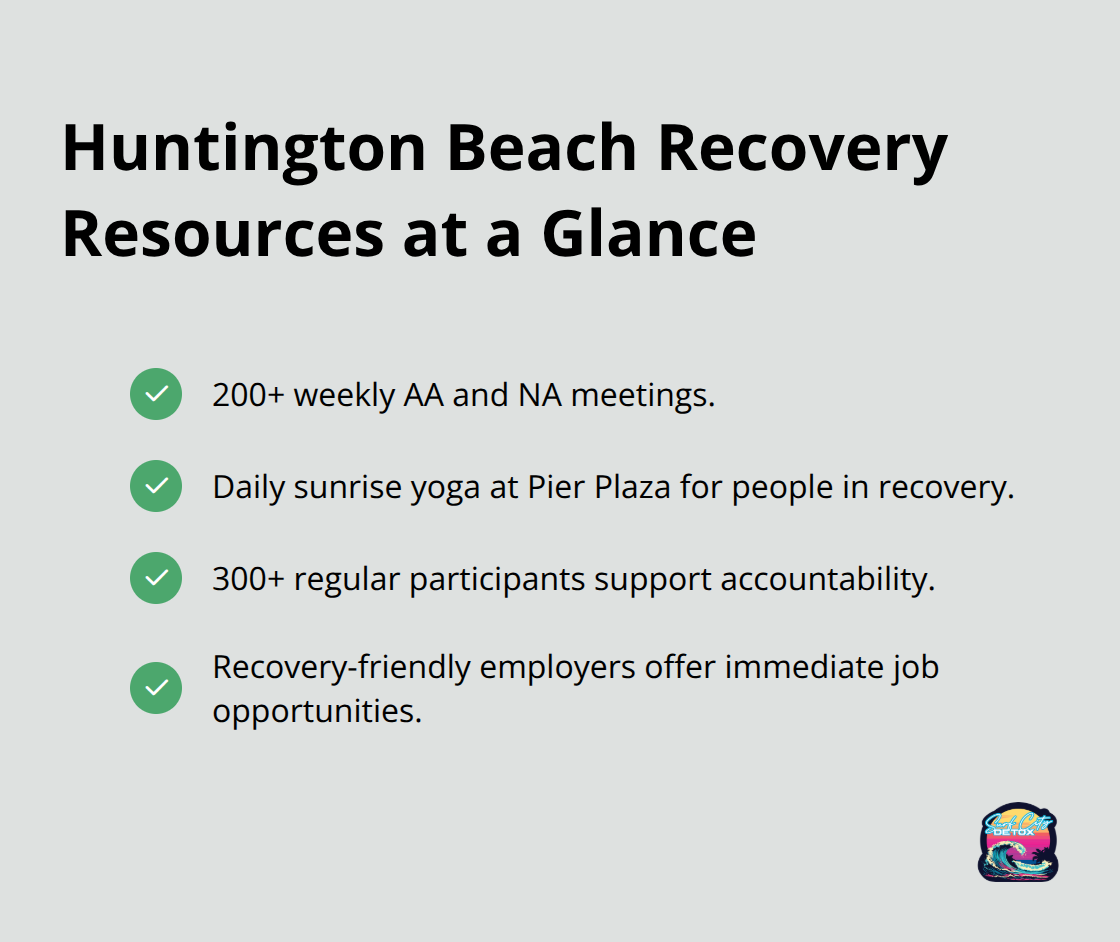
Local employers like Boeing, Edwards Lifesciences, and Quicksilver actively participate in recovery-friendly workplace initiatives and offer immediate employment opportunities that support financial stability during the transition back to independent living.
These environmental advantages work hand-in-hand with comprehensive treatment programs that address every aspect of addiction recovery.
Comprehensive Alcohol Treatment Programs Available
Medical detox at specialized facilities provides significant advantages over at-home attempts, with medically supervised detox showing superior outcomes for patients with severe alcohol use disorder. Professional facilities provide 24/7 clinical monitoring that prevents dangerous complications like delirium tremens, which affects 15% of people who withdraw from severe alcohol dependency. Medical teams use FDA-approved medications including naltrexone and acamprosate that reduce cravings by up to 60% during the critical first 30 days. Blood pressure checks every four hours prevent cardiovascular emergencies, while IV hydration therapy corrects the electrolyte imbalances that cause seizures in 12% of unsupervised alcohol withdrawals.
Residential Programs That Target Core Issues
The average residential stay of 28-30 days produces abstinence rates of 68% at six months, significantly higher than outpatient programs at 23% (based on data from the Treatment Episode Data Set). Residential approaches target trauma, which affects 75% of people with alcohol use disorders according to the Substance Abuse and Mental Health Services Administration. Cognitive Behavioral Therapy sessions twice weekly help clients identify the specific triggers that lead to alcohol use, while Dialectical Behavior Therapy teaches concrete skills for emotion management without substances.
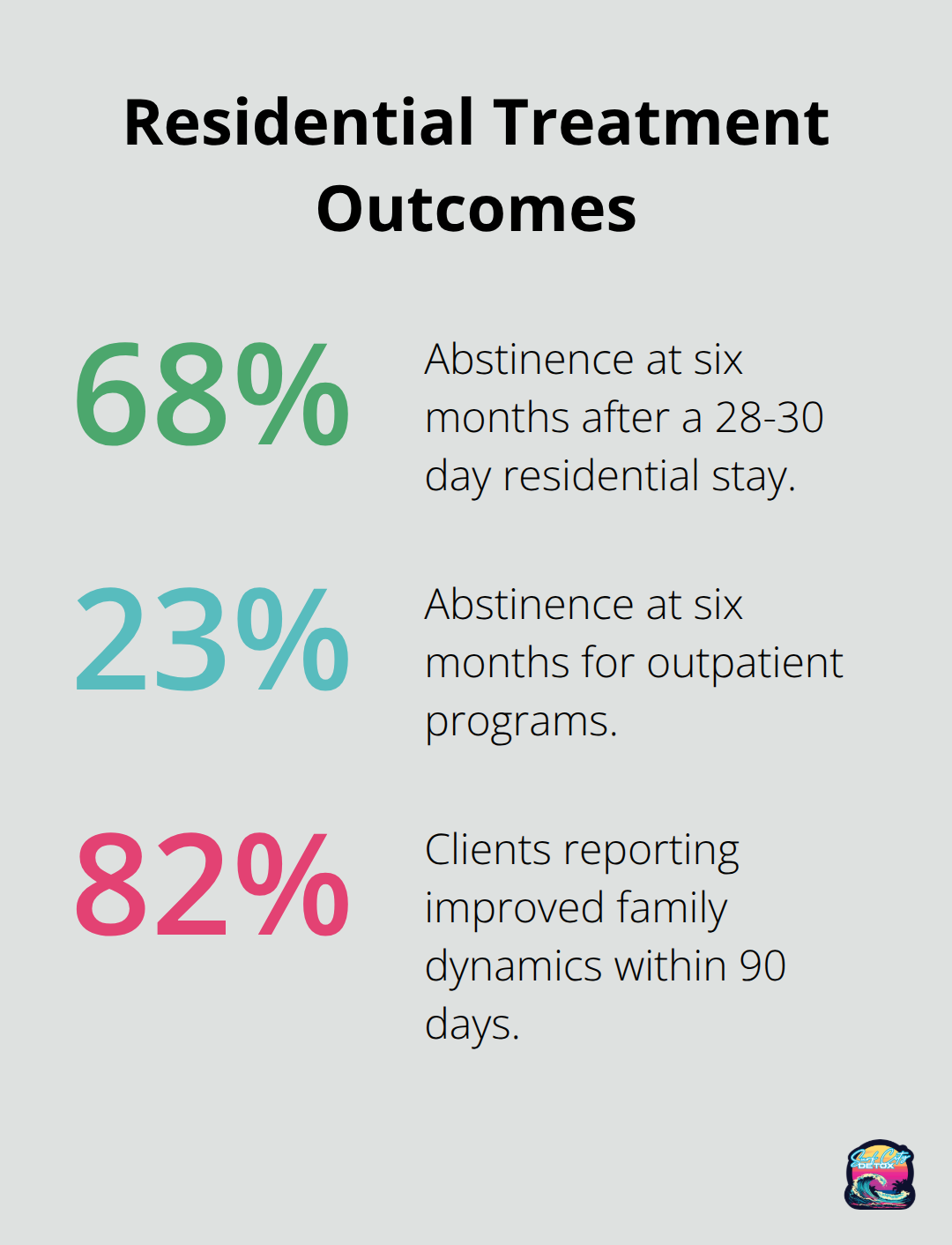
Family therapy sessions repair relationships damaged by addiction, with 82% of clients in quality programs reporting improved family dynamics within 90 days.
Integrated Mental Health Treatment
Dual diagnosis treatment becomes essential when considering that co-occurring disorders affect approximately 21.5 million adults in the United States. Depression co-occurs with alcohol addiction in 63% of cases, while anxiety disorders appear in 56% of alcohol-dependent individuals. Integrated approaches treat both conditions simultaneously rather than sequentially, which reduces relapse rates from 85% to 47% within the first year. Psychiatric medication management combined with therapy addresses the brain chemistry imbalances that drive both addiction and mental health symptoms.
Evidence-Based Therapies That Create Lasting Change
Motivational Enhancement Therapy increases treatment engagement by 40% compared to standard counseling approaches, according to research from the National Institute on Alcohol Abuse and Alcoholism. Group therapy sessions create peer accountability networks that extend beyond treatment completion. Trauma-informed care addresses the adverse childhood experiences that affect 64% of adults with substance use disorders. These therapeutic approaches work together to create the foundation for sustained recovery, but their effectiveness depends heavily on the quality and individualization of the overall treatment program.
What Sets Elite Treatment Programs Apart
Quality alcohol rehab programs distinguish themselves through comprehensive initial assessments that examine medical history, psychological profile, trauma background, and substance use patterns to create individualized treatment plans. The American Society of Addiction Medicine’s Patient Placement Criteria requires facilities to evaluate six dimensions including acute intoxication potential, biomedical conditions, emotional and behavioral complications, treatment acceptance, relapse potential, and recovery environment. Top-tier programs conduct neuropsychological tests to identify cognitive impairments from alcohol use, with many chronic alcohol users showing measurable deficits in executive function that require specialized therapeutic approaches.
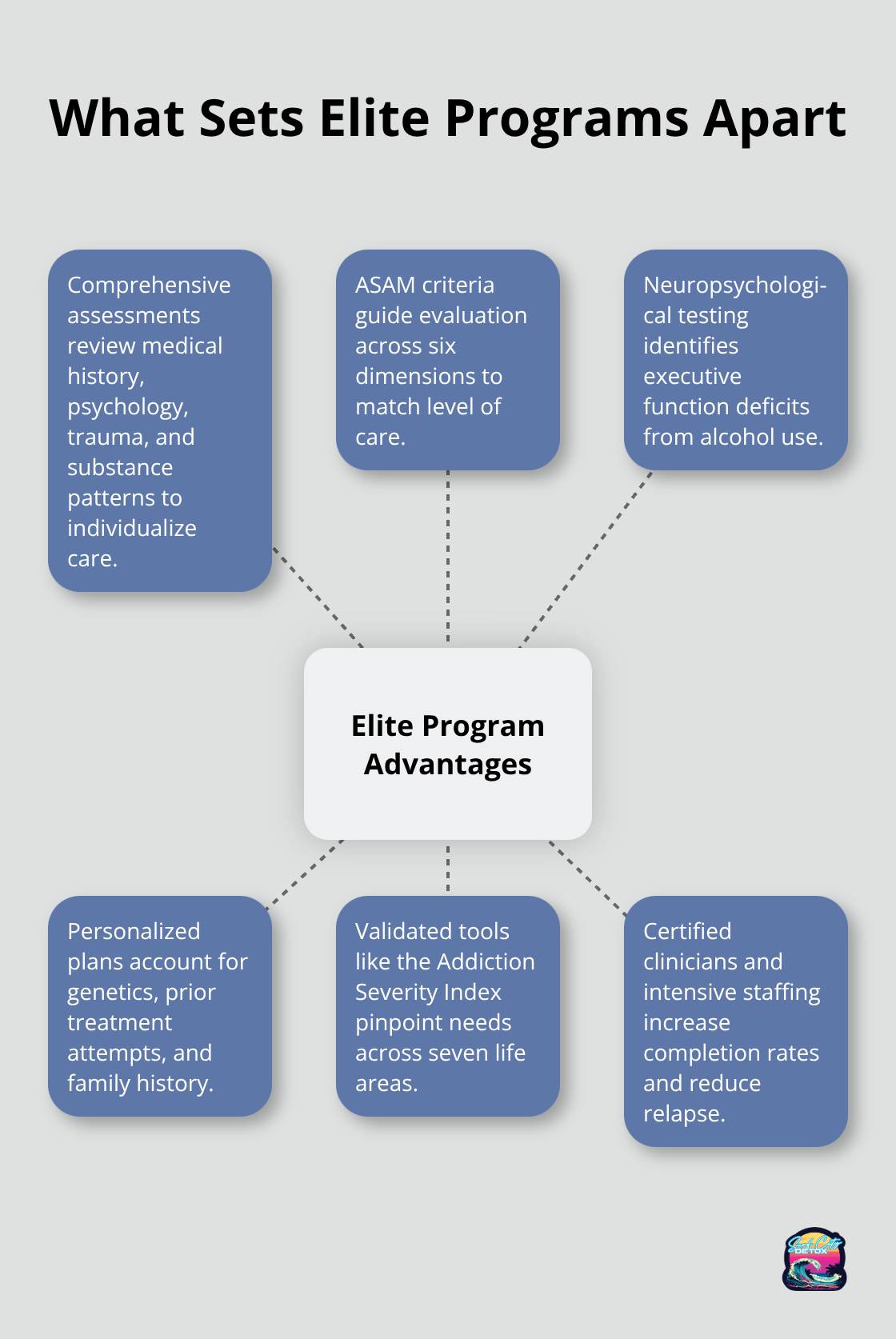
Personalized Assessment and Treatment Plans
Quality staffing ratios allow therapists to adjust treatment intensity weekly based on individual progress markers rather than following rigid protocols. Clinical teams create detailed profiles that account for genetic predisposition to addiction (which affects 40-60% of addiction risk according to the National Institute on Drug Abuse), previous treatment attempts, and family history of substance use disorders. Advanced facilities use validated assessment tools like the Addiction Severity Index to measure treatment needs across seven life areas, then design interventions that address each client’s specific deficits and strengths.
Evidence-Based Integration with Holistic Methods
The most effective programs combine FDA-approved medications like naltrexone with complementary therapies, producing superior outcomes compared to single-approach treatments. Acupuncture reduces withdrawal symptoms when added to standard medical protocols, while yoga therapy decreases cortisol levels and improves sleep quality in participants. Nutritional therapy addresses the vitamin deficiencies present in many people with alcohol use disorders, particularly B-vitamins that affect mood regulation and cognitive function.
Intensive Staffing Creates Treatment Breakthroughs
Programs maintaining optimal staffing ratios achieve higher completion rates than facilities with inadequate staffing levels. Individual therapy sessions multiple times weekly rather than once weekly reduce relapse rates in the months following treatment. Clinical staff with addiction medicine certification provide superior outcomes, with board-certified addiction psychiatrists identifying co-occurring disorders missed by general practitioners in complex cases. Art and music therapy activate different brain regions than traditional talk therapy, helping clients process trauma that verbal methods cannot reach effectively.
Final Thoughts
Recovery from alcohol addiction requires professional support, and that first step demonstrates remarkable courage. The statistics speak clearly: medically supervised treatment produces abstinence rates of 68% at six months compared to 23% for those who attempt recovery without professional help. We at Surf City Detox have witnessed thousands of transformations in our facility, where the coastal environment combines with evidence-based treatment protocols.
Life after treatment extends far beyond the initial residential stay. Alumni programs maintain community connections that research shows reduce relapse risk by 47% within the first year (based on longitudinal studies from treatment outcome databases). Our aftercare support includes therapy sessions, family counseling, and access to the extensive recovery network throughout Orange County.
Your path to lasting sobriety starts with a single phone call. Our compassionate intake specialists verify insurance coverage and guide you through the admission process, removing barriers that prevent people from accessing life-saving treatment. Surf City Detox provides comprehensive alcohol rehab Huntington Beach services under one roof, from medically supervised detox through residential treatment and dual diagnosis care.

